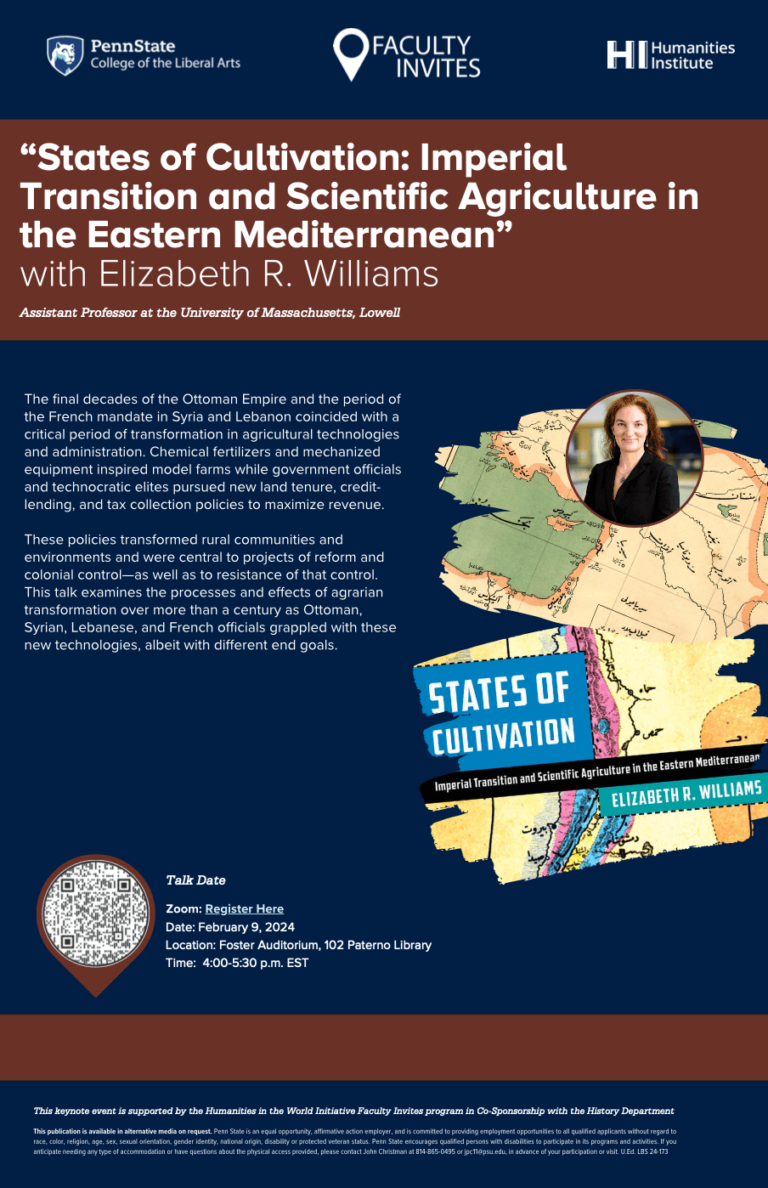Spring 2024
Elizabeth R. Williams
Assistant Professor at University of Massachusetts, Lowell
“States of Cultivation: Imperial Transition and Scientific Agriculture in the Eastern Mediterranean”
Friday, February 9, 2024, at 4:00 – 5:30 p.m.
Foster Auditorium, 102 Paterno Library
The final decades of the Ottoman Empire and the period of the French mandate in Syria and Lebanon coincided with a critical period of transformation in agricultural technologies and administration. Chemical fertilizers and mechanized equipment inspired model farms while government officials and technocratic elites pursued new land tenure, credit-lending, and tax collection policies to maximize revenue. These policies transformed rural communities and environments and were central to projects of reform and colonial control—as well as to resistance of that control. This talk examines the processes and effects of agrarian transformation over more than a century as Ottoman, Syrian, Lebanese, and French officials grappled with these new technologies, albeit with different end goals.
Co-Sponsors by the History Department
